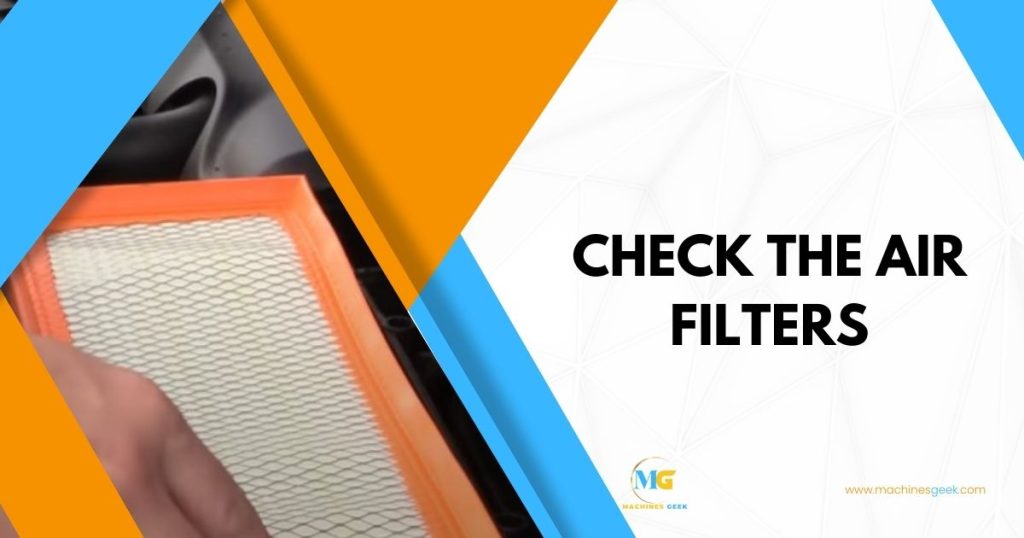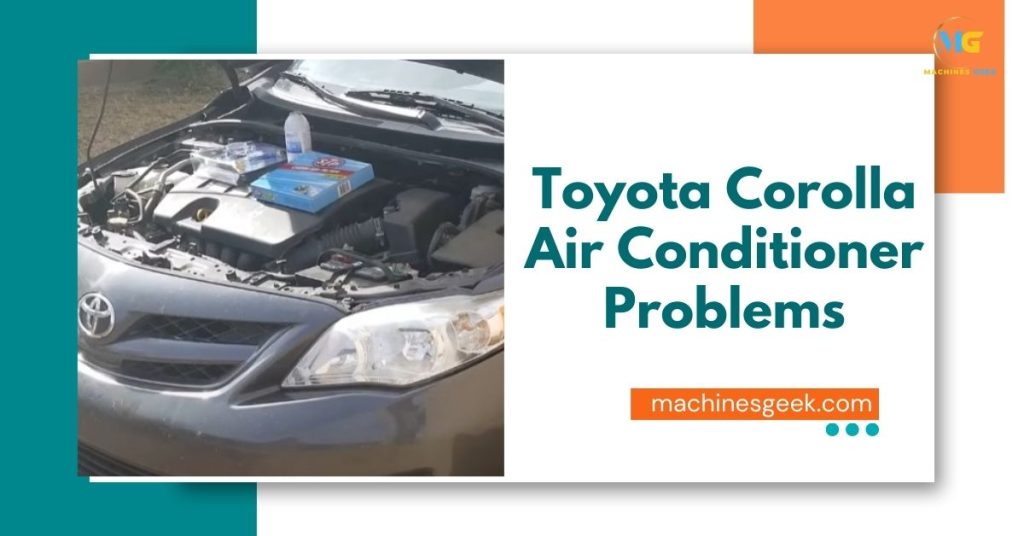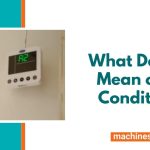Toyota Corolla air conditioner problems can be a common issue for many owners, causing discomfort and frustration. Let’s explore some of the potential issues that can arise with the air conditioning system in a Toyota Corolla, such as a malfunctioning compressor, leaking refrigerant, or faulty blower motor.
It’s important to address these problems promptly to ensure the overall functionality of the air conditioning system and maintain a comfortable driving experience. By understanding the potential causes of these problems, owners can take appropriate steps to diagnose and resolve the issues with their Toyota Corolla’s air conditioner.
Insufficient Cooling
The Toyota Corolla may experience air conditioner problems, resulting in insufficient cooling. One common issue is weak airflow, which can be caused by a clogged air filter or a malfunctioning blower motor. It is important to regularly check and replace the air filter to ensure proper airflow.
Another problem is inadequate temperature control, where the air conditioner fails to cool the interior to the desired temperature. This can be due to a faulty thermostat or a refrigerant leak.
If the temperature control is not functioning properly, it is recommended to have the system inspected and repaired by a qualified technician. Maintaining the air conditioning system of a Toyota Corolla is crucial for a comfortable driving experience, especially during hot summer months.
Strange Noises And Odors
Strange noises and odors coming from your Toyota Corolla’s air conditioning system can be indicators of potential problems. Unusual sounds, such as squealing or rattling, may suggest issues with the AC compressor or belt tension.
If you notice foul odors while using the AC, it could indicate mold or mildew growth within the system, which can impact air quality and cause respiratory issues. It’s important to address these problems promptly to ensure the proper functioning of your vehicle’s air conditioning system.
Regular maintenance, including filter replacement and cleaning, can help prevent these problems. If you experience any of these issues, it’s recommended to consult a qualified technician who can diagnose and fix the problem efficiently.
Ac Compressor Failure
AC compressor failure is a common issue faced by Toyota Corolla owners. It can lead to a lack of cool air circulation inside the car, especially during hot summer months. Recognizing the symptoms of a failing AC compressor is crucial in addressing the problem promptly. Some common signs include:
- Unusual noises coming from the compressor
- Inconsistent cooling or warm air blowing from the vents
- Frequent cycling of the compressor
- Leaking refrigerant
Various factors can contribute to AC compressor failure in Toyota Corolla. These include:
- Poor maintenance and lack of routine checks
- Excessive strain on the compressor due to extended periods of use
- Contaminants in the refrigerant
- Electrical issues, such as problems with the clutch
If you notice any of the mentioned symptoms, it is advisable to consult a professional mechanic to diagnose and repair the AC compressor in your Toyota Corolla. Prompt attention to AC compressor problems can help avoid further damage and costly repairs.
Check The Air Filters

To ensure your Toyota Corolla’s air conditioner functions properly, it is crucial to regularly check and maintain the air filters. Clean air filters play a vital role in keeping the air circulating through the system clean and fresh. Over time, dust, debris, and pollen accumulate in the filters, obstructing the airflow and reducing the efficiency of the air conditioner.
Inspecting and cleaning the air filters is a relatively simple process. Follow these steps:
| Step 1: | Locate the air filter compartment. In most Corolla models, it is situated behind the glove box. |
| Step 2: | Remove the glove box by unfastening the screws or tabs. |
| Step 3: | Once the glove box is out, you can access the air filter compartment. |
| Step 4: | Take out the old air filters and assess their condition. If they appear dirty or clogged, they require cleaning or replacement. |
| Step 5: | If the filters are reusable, gently vacuum or wash them using mild soap and water. Allow them to dry completely before reinserting. |
| Step 6: | Reinstall the air filters, ensuring they are properly positioned. |
| Step 7: | Reattach the glove box to its original position. |
By regularly inspecting and cleaning your Toyota Corolla’s air filters, you can prevent potential air conditioner problems and maintain optimal performance.
Inspect Refrigerant Levels
If you are experiencing issues with your Toyota Corolla’s air conditioner, one potential problem to check for is low refrigerant levels. Low refrigerant can lead to several risks, including reduced cooling capacity and potential damage to the compressor. To inspect and replenish the refrigerant levels, follow these steps:
- Locate the low-pressure A/C service port, usually found on the line between the evaporator and compressor.
- Attach a gauge and check the pressure. Normal pressure is typically around 30-40 PSI.
- If the pressure is low, add refrigerant using the appropriate refrigerant and equipment.
- Monitor the pressure while adding refrigerant, ensuring it reaches the recommended level.
- Check for any leaks and repair them if necessary to prevent future refrigerant loss.
Regularly inspecting and maintaining the refrigerant levels in your Toyota Corolla can help ensure efficient and reliable air conditioning performance. If you are unsure or uncomfortable performing this inspection yourself, it is recommended to seek assistance from a qualified automotive technician.
Examine The Ac Condenser
The AC condenser in a Toyota Corolla plays a crucial role in keeping the cabin cool and comfortable, but it can also be a source of problems. Common issues with the AC condenser include refrigerant leaks, damage from road debris, and clogged fins. It is important to examine the condenser regularly to ensure optimal performance.
A refrigerant leak can cause a significant drop in cooling efficiency. Check for signs of oil or refrigerant residue around the condenser fittings. Damage from road debris, such as rocks or branches, can result in bent fins or punctured tubes. Inspect the condenser for any signs of physical damage. Clogged fins can restrict airflow and impede cooling capacity. Use a soft brush or compressed air to remove any debris that may be blocking the fins.
If you encounter any problems with the condenser, it is recommended to consult with a qualified technician. They can assess the issue and offer the appropriate solution, such as replacing damaged parts or recharging the refrigerant. Regular maintenance and timely repairs are essential to ensure optimal performance of the air conditioning system in your Toyota Corolla.
Regular Cleaning Of The Evaporator Coils
To keep your Toyota Corolla’s air conditioner running efficiently, regular cleaning of the evaporator coils is essential. The evaporator coils are responsible for removing heat and humidity from the air inside your car. Over time, these coils can become dirty and clogged with dust, dirt, and other debris. It is important to clean them regularly to ensure proper airflow and prevent potential problems.
Clean evaporator coils are crucial for maintaining the efficiency and performance of your air conditioner. When the coils are dirty, the airflow is restricted, which can lead to reduced cooling capacity and increased energy consumption. Additionally, dirty coils can also cause the air conditioner to freeze up, resulting in a lack of cool air and potential damage to the system. It is recommended to clean the evaporator coils at least once a year, or more frequently if you live in a dusty or high-pollution area.
Steps to Clean Evaporator Coils:
- Turn off the air conditioner and disconnect the power to the unit.
- Remove any access panels or covers to expose the coils.
- Use a soft brush or vacuum cleaner to gently remove dust and debris from the coils.
- Apply a foaming coil cleaner to the coils and let it sit for a few minutes.
- Rinse the coils thoroughly with water to remove the cleaner and loosened dirt.
- Allow the coils to dry completely before reassembling the unit.
By following these steps, you can effectively clean the evaporator coils of your Toyota Corolla’s air conditioner and ensure optimal performance and longevity of the system.
Frequent Condenser Maintenance
The condenser in the Toyota Corolla’s air conditioner plays a vital role in keeping the interior cool during hot summer days. To ensure that it functions optimally and lasts a long time, frequent maintenance is necessary. By following a few simple preventative measures, you can prolong the life of the condenser and avoid potential problems.
Regularly cleaning the condenser fins from dirt and debris helps maintain its efficiency. Additionally, using a condenser coil cleaner can remove any built-up grime, ensuring smooth operation. Another important step is to check for any oil or refrigerant leaks, which can lead to performance issues. By taking these measures, you can keep the condenser in optimal condition, allowing the air conditioner in your Toyota Corolla to cool effectively and efficiently.
Proper Usage And Care Of Dashboard Controls
Proper usage and care of dashboard controls is essential for maintaining the functionality and longevity of your Toyota Corolla’s air conditioning system. Here are some tips to help you use your AC controls correctly and avoid common mistakes that can put excessive strain on the system:
| Tip 1: | Always start by setting the temperature to a comfortable level, avoiding extreme settings that can cause unnecessary stress on the system. |
| Tip 2: | Use the air recirculation mode judiciously. While it can help cool the cabin faster, prolonged usage can lead to excessive humidity and unpleasant odors. |
| Tip 3: | Ensure that the AC compressor is not engaged when the outside temperature is low. This prevents damage to the compressor and improves fuel efficiency. |
By following these tips, you can optimize the performance of your Toyota Corolla’s air conditioning system and reduce the risk of encountering common AC problems. Remember to regularly maintain and service your vehicle to ensure optimal cooling efficiency and a comfortable driving experience.
Can Remote Control Issues Affect the Functioning of a Toyota Corolla’s Air Conditioner?
Having troubleshooting fujitsu air conditioner remote issues can certainly affect the functioning of a Toyota Corolla’s air conditioner. If the remote isn’t working properly, it may not be able to communicate the correct commands to the air conditioner, leading to potential malfunctions or lack of control over temperature settings.
Frequently Asked Questions
What Causes The Air Conditioner In A Toyota Corolla To Blow Warm Air?
There are several potential causes for the air conditioner blowing warm air in a Toyota Corolla. It could be due to refrigerant leaks, a faulty compressor, or a malfunctioning thermostat.
How Can I Improve The Air Conditioner’s Performance In My Toyota Corolla?
To improve the air conditioner’s performance in your Toyota Corolla, you can regularly clean or replace the air filters, ensure the condenser is not blocked, and have the system serviced by a professional.
Why Does The Air Conditioner In My Toyota Corolla Make A Strange Noise?
A strange noise coming from the air conditioner in your Toyota Corolla could indicate a problem with the compressor, a loose fan belt, or a malfunctioning blower motor. It’s best to have it inspected by a mechanic.
Conclusion
Tackling Toyota Corolla air conditioner problems requires a proactive approach. Car owners should regularly maintain and clean the system to ensure optimal performance. Additionally, promptly addressing any issues such as weak airflow or unusual noises can prevent further damage. With proper care and attention, you can enjoy a comfortable and refreshing driving experience, even on the hottest of days.
So stay cool and keep your Corolla’s air conditioner running smoothly!








